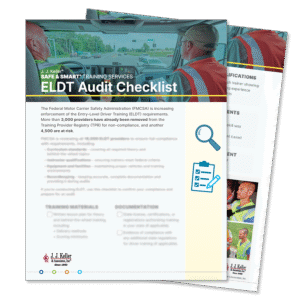BRENTWOOD, Tenn. — More than 50% of drivers say they are not actively seeking new driving jobs, and more than 56% believe the end of the freight recession could be near. That’s according to the Fall 2023 Driver Survey conducted by Conversion Interactive Agency in partnership with People. Data. Analytics (PDA).
The survey delves into various critical topics, including assessing the level of optimism among drivers regarding the state of the freight market. It also explores the pivotal factors that lead drivers to contemplate making a change in their employment, and the preferences they hold when exploring new driving opportunities.
In the fourth consecutive biannual survey, more than half of the surveyed drivers said they are not actively seeking new driving opportunities. However, survey findings reveal that 33.3% of drivers are currently in search of employment, a figure that remains virtually unchanged from the previous spring survey, when 33.8% of drivers expressed a desire for new opportunities.
According to a statement from Conversion Interactive Agency, this statistic is important to carriers in the transportation industry because it signals the challenge they face in attracting drivers to their fleets. For truck driver recruiters, the survey results indicate a need to adopt and utilize new tools to pursue and process driver applications using the latest technology.
“Embracing innovation and technology is the key to success in today’s driver market, and drivers have already shown their readiness to respond. By leveraging technology like Conversion’s Lead Assist platform with advanced AI automation, we’ve seen a significant boost in the speed and quality of full applications,” said Kelley Walkup, president and CEO of Conversion Interactive Agency.
Incorporating new tools and technology for recruitment and retention can be a key differentiator among carriers, particularly during a freight recession, but is always a factor. Notable in the survey is a result regarding driver opinion regarding the economy.
A slight majority, 56.1%, of drivers responded “yes” they are optimistic about the impending end of the freight recession. A statement from Conversion Interactive Agency and PDA noted that these results, reflecting a positive sentiment within the industry, were surprising. The statistic suggests drivers may believe the current freight recession, which has persisted for a while, will come to an end in the near future. Historically, freight recessions have typically lasted 18 to 22 months, the current window for this economic downturn, although concrete data indicating a recovery has yet to materialize.
“If you have the miles drivers need to make a competitive paycheck in this market, tell that story in your recruitment marketing messages,” Walkup said. “In a freight recession, drivers want to know the freight opportunities your carrier has for them so they know the miles they can expect.”
In response to inquiries about their top concerns, drivers voiced two primary worries — meeting monthly bills (72.4%) and the importance of home and family (59.5%). Additionally, nearly 40% of respondents, reflecting the aging workforce in the industry, expressed concerns about saving for retirement.
“These results underscore the significance of work-life balance and family-related concerns in the lives of our drivers. The concern over retirement savings aligns with the age demographics observed in the survey,” said Scott Dismuke, vice president of operations at PDA.
When asked what they would do if they were in control of a trucking company and had the opportunity to take a single action to attract and retain drivers, 36.4% expressed the need to increase pay, while 23.3% recommended guaranteeing a minimum pay or mileage/loads. These findings underscore the persistent need for predictable pay, driven by factors such as reduced mileage and inconsistent freight. While immediate pay raises may not be the sole solution, focusing on initiatives that help drivers access more miles remains crucial.
“It’s worth noting that many existing ‘guaranteed pay’ models are not genuine guarantees; they come with conditions,” Dismuke said. “It’s essential to exercise caution when employing the term ‘guarantee,’ as drivers experiencing a ‘guarantee’ that falls short of expectations are at nearly double the risk of turnover. Effective communication about your driver compensation strategies in your recruitment marketing is paramount. Clear, concise, and transparent messaging plays a critical role in establishing trust with drivers.”
As the economy undergoes ongoing transformations, Walkup and Dismuke agree the task of recruiting and retaining drivers will persist as a formidable challenge for trucking companies. Sustaining driver satisfaction is a complex endeavor, with various individual factors in play. Carriers must possess a firm grip on their data and technology, attentively monitoring the feedback from their drivers. Even more crucial, carriers need to identify the source of feedback and respond to drivers’ concerns.
To access the full survey report, click here.
The Trucker News Staff produces engaging content for not only TheTrucker.com, but also The Trucker Newspaper, which has been serving the trucking industry for more than 30 years. With a focus on drivers, the Trucker News Staff aims to provide relevant, objective content pertaining to the trucking segment of the transportation industry. The Trucker News Staff is based in Little Rock, Arkansas.














